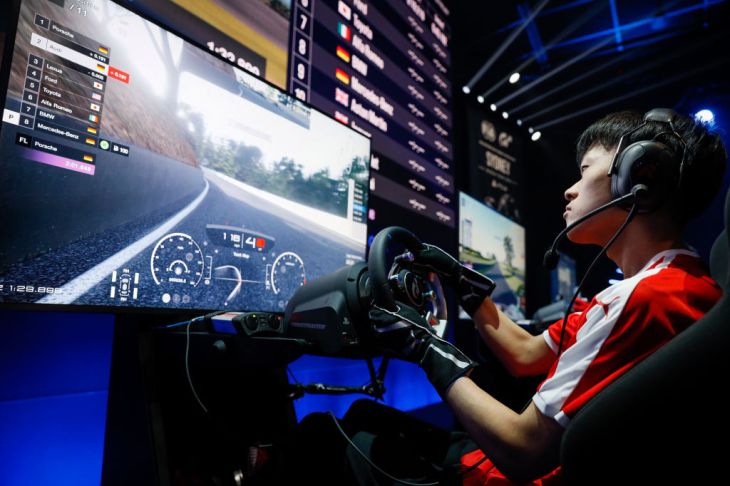If anyone had mentioned eSports becoming an Olympic sport a mere 20 years ago, people would not have known what they were talking about. However, now there is every possibility that it could happen by as early as 2028.
Some might argue that eSports cannot become an Olympic sport as participants do not engage in physical activity. Indeed, they often do not even get up from a sitting position. So, what are eSports, and how could they revolutionize the Olympic Games?
Why include eSports as an Olympic sport?
eSports did not gain mainstream popularity until the 2010s. At first, it was something that only tech geeks found interesting, but that has changed in the last decade, and they are gaining a substantial place on more than one sportsbook app. In 2021, more than 500 million people will tune in to watch eSports events. This industry should generate up to $1 billion in revenue. With such a lucrative audience and moneymaking potential, is it any wonder that the International Olympic Committee (IOC) is eying an opportunity to make it part of the world’s largest sporting event?
Consider that 2016’s Rio Olympics was watched by about 3.2 billion people and that numbers seem to have declined during this year’s Tokyo games, postponed by a year due to Covid. The IOC can see that its games need to evolve and become more relevant, and utilizing eSports could be the answer it seeks.
An uphill battle
Introducing eSports into the Olympic Games might not be smooth sailing as some IOC members are expected to resist its inclusion. As an example, why not consider chess? While chess is regarded by many as a sport, it remains a game labeled as being sports-adjacent. Despite being around for centuries and competitive chess tournaments held in nearly every country worldwide, getting chess introduced as an Olympic sport has never succeeded.
A sports discipline needs a governing body before it can be introduced as an Olympic event. Chess has such an association but remains outside the Olympic ambit. eSports does not have a governing federation, which is a requirement for Olympic inclusion. Whether one will be formed remains uncertain.
Another Olympic obstacle for eSports is its nature. Some games have violent themes, making them contradictory to Olympic values of friendship, cooperation, and a platform for countries to compete against each other in a peaceful environment that fosters solidarity. Unless the IOC plans to put these values aside, some eSports games might make it into its games, even if eSports were sanctioned as an Olympic sport.
A brief introduction
As if to test drive eSports’ viability as a recognized Olympic sport, the IOC allowed a set of eSports events to run leading up to this year’s Tokyo Olympics. Given the digital transformations in businesses and other spheres of life, such as gaming, the committee would have been foolish not to try it. While these events were successful, it seems that getting eSports onto an Olympic calendar might take longer than most fans would like.
Surfing made its Olympic debut in Tokyo after campaigning to include it started as early as the 1990s. A motion to get surfing into the Olympics in Tokyo began in September 2015, taking five years to complete the processes to allow it. Therefore, eSports proponents can only realistically expect it to become an Olympic sport by 2028’s games in Los Angeles, California. It seems that hoping for inclusion by Paris’s 2024 games is too ambitious as the IOC needs enough time to consider it.
Does eSports need the Olympics?
Based on viewer figures and some countries left with disappointing Olympics 2020 results, most would argue that the Olympics needs eSports far more than it needs the Olympics. This begs the question whether eSports require Olympic recognition to gain legitimacy, given that this industry is growing exponentially on its own.
Are eSports a sport?
While eSports players might not spend hours in a gym, swimming pool, or track training, they undertake rigorous programs to prepare themselves for tournaments. These games require as much hand-eye coordination as other sports and also rely on teamwork and mental endurance. This, their supporters argue, is more than enough to make them a recognized sport that could become a feature of future Olympic games.






